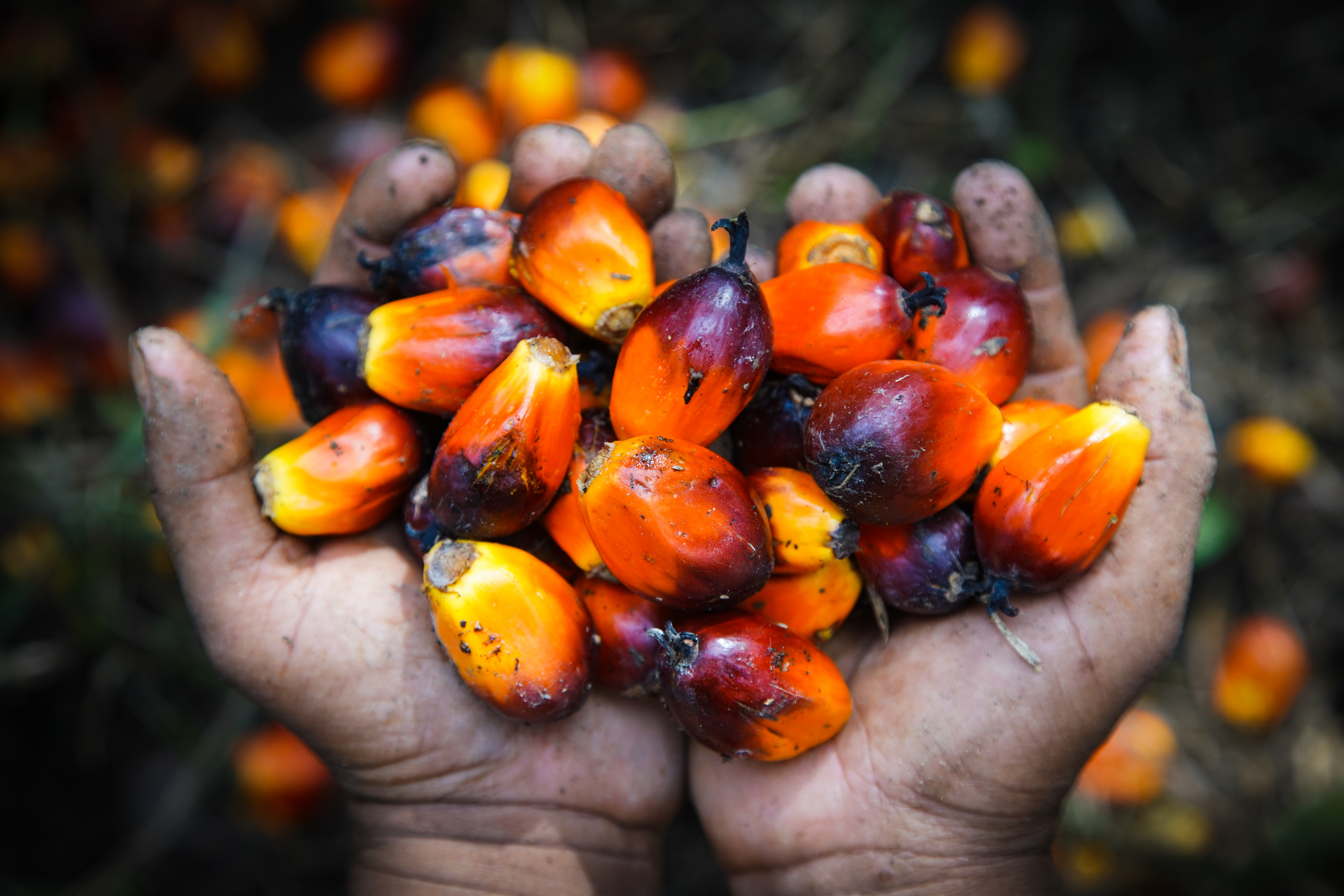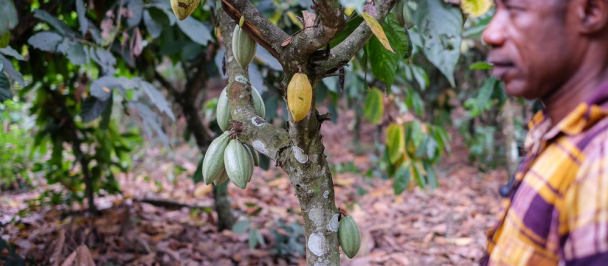Andrew Bovarnick, UNDP Global Head of Food and Agricultural Commodity Systems, discusses why it takes the whole of government to transform food systems
Food Systems Transformation: a Whole of Government Approach to Drive Change
January 15, 2024

Food systems encompass an amazing array of actions, practices and policies that lie at the heart of sustainable development, nutrition, climate and nature. It is truly breathtaking how food systems cut across all aspects of our economy and society, lying at the centre of the world’s most pressing challenges and ambitions. Just look at their relevance across all the SDGs: food systems are not only relevant to SDGs but an essential component of change. Combating health, poverty, inequality, climate change and biodiversity loss requires the transformation of food systems to be more resilient, equitable, sustainable and embedded across a whole host of actions at country and global level. This reframing of our thinking and the plan of action that results is enormous in its ambition and complexity.
One of the first reframes and pivots we must achieve is to recognise and acknowledge that the whole food system must change, not just a part of it, and with this aim we have to engage the whole of government. In fact, we need the whole of society but let’s start focusing on the need to go beyond Ministries of Agriculture. Including and ensuring a central place for food systems driving policy in all Ministries is key to achieve the wide-ranging transformation we aim to achieve.
The UN Food Systems Summit and recent 2 year Stocktake identified the necessity of integrated planning and embedding food and agriculture into existing commitments like National Adaptation Plans, Nationally Determined Contributions (NDCs), and National Biodiversity Strategies and Action Plans. For this to be achieved we need to tackle a broader range of challenges than those which fall into the mandate and responsibilities of Ministries of Agriculture. Food is a development issue and that means involving a wide range of Ministries and government agencies in the transformational effort.
The national food system pathways generated and catalysed by the Food Systems Summit have made significant efforts to bring in the other key Ministries. In some countries Ministries other than Ministry of Agriculture were given the job of coordinating the pathways, such as the Ministry of Health in Mexico. It is exciting to see these new governance arrangements. In some countries we see the emergence of food systems at the Presidential level, with Offices of the President or Prime Minister or a Coordinating Ministry taking on the systemic coordination responsibilities for food systems. Taking food systems to this high level is the first step in encouraging, supporting, and driving whole of government engagement, collaboration and coherence in national policy and legislative frameworks to truly transform food systems.
10 policy areas to achieve change
Let’s now get specific. Why do we need the whole of government? Is it really needed? Won’t it just overcomplicate our work? Shouldn’t we just focus on training farmers? Well, to get this ball rolling there are at least 10 policy areas that need to be addressed to transform food systems. Some of them are entirely within one ministry’s area of responsibility, others need a collaborative approach from several ministries. Others go beyond government to the whole of society. That needs strong policy coherence, making sure all are lined up towards a common objective. The 10 policy areas include:
- Agricultural subsidies and taxes – includes the responsibility of the Ministry of Finance or the Treasury. Agricultural subsidies will be funded by the Ministry of Finance, which need to fund and reform those which have negative unintended consequences.
- Health & nutrition – healthy diets are key to societal health and policies for consumers heavily influence the production mix of farmers. This focus on health and diet requires Ministries of Health, such as noted above in Mexico where the Health Ministry runs the national food system pathways. Ministries of Social Development or Social Inclusion will also be involved in food programmes.
- GHG emission reductions – the Ministry of Environment responsible for the achievement of a country’s NDCs must work closely with the agricultural ministry to reduce emissions of the sector, accounting for 30% at global level. This is from a mix of reducing agricultural expansion into forests and natural habitats (peat, wetlands), ocean management, and also reduction in agro-chemical production (nitrates).
- Land Use Planning – a key factor in food systems is growing the right crops on the right land. The responsibility for land use plans resides in local government – state, district and municipal.
- Education – The next generation of youth if they are to go into farming need the right education and training which starts at school and into university. This requires the Ministry of Education to be heavily involved in ensuring such curricula are embedded in education and specialist colleges. School meals are also highly influential both for children's diets and local demand for farmers, again with the Ministries of Education, Social Development and Social Inclusion to make it happen.
- Infrastructure – The ability to get farm produce to market in a timely manner is key to food system success. The Ministry of Transport and Ministry of Public Works hold these responsibilities.
- Trade – In many countries, agricultural commodities make up a significant proportion of the export GDP. The Ministry of Trade will be responsible for relations with the World Trade Organisation and the “open, fair, inclusive, equitable and transparent” trading arrangements called for by the COP28 Food Systems Declaration. This Ministry also controls import and export taxes which heavily influence prices and competition between global products and locally produced food.
- Small and Medium Sized Enterprises are central to food system success, both as smallholder farmers and fishers and in the food processing and supply chain. The right policies from Ministries in charge of SMEs, where they exist, will encourage business development in the SME sector and support food systems as a result.
- Cooperatives – Effective smallholder organization is essential if they are to participate fully in food system transformation. Many countries have a Ministry in charge of Cooperatives which can encourage collective representation amongst farmers and fishers, and the producer and retailer cooperative structures which improve market conditions.
- Coordination – Either by a Ministry with specific responsibilities for co-ordination or, as noted above, the Office of the President or Prime Minister.
As so many policies fall across Ministries when developing National Action Plans, even for one commodity there is a need to coordinate and collaborate across many. In Indonesia, the Sustainable Palm Oil National Action Plan was formally adopted by Presidential instruction in 2019. Since 2015, the UNDP-led, GEF-funded Good Growth Partnership had supported the development of the Plan. The Presidential instruction allocated responsibility and budgets to no fewer than 14 ministries[1] to ensure the successful implementation of the plan.
UNDP’s work in inter-ministerial alignment continues in Vietnam, where the Office of the President has instructed 4 ministries – Agriculture, Finance, Environment and Trade – to work together on food system partnerships.
This all requires a huge amount of effective coordination and collaboration. The policy areas listed above must all mesh together to benefit the food system, so effective coordination is essential to policy coherence. This is particularly challenging when ministries have different priorities, agendas, and ways of working. In Indonesia, this responsibility lies with the Co-ordinating Ministry of Economic Affairs: in other countries this task falls to the Office of the President or Prime Minister. Whoever is in charge, a coordinated time plan with objectives for each aspect of the food system will bring transformation closer.
Coordination is a human as well as technical skill: UNDP’s Effective Collaborative Action methodology has been developed over more than a decade to guide the process of building trust and community, dealing with power imbalances and conflict, and encouraging systems leadership from all stakeholders.
This is also why global declarations around food systems - whilst representing a start – need a lot more work to be successfully implemented at country level. It is this arena of inter-ministerial agreement, common visioning, and coordination where we must focus our attentions and energies if we are really to shift the system.
As we proceed ahead with food systems, it is paramount to make sure all relevant Ministries are involved in an effective manner. Only then can we plan on interventions which start to be truly systemic. This process will jumpstart our progress towards the next ambition, bringing in the whole of society for food systems that are equitable, healthy, and resilient.
[1] Indonesia: the 14 Ministries involved in NAP SPO
- Ministry of Agriculture
- Ministry of Environment and Forestry
- Coordinating Ministry for Economic Affairs
- Ministry of Internal Affairs
- Ministry of National Development Planning (BAPPENAS)
- Ministry of Agrarian & Spatial Planning
- Ministry of Foreign Affairs
- Ministry of Finance
- Ministry of Commerce
- Ministry of Energy and Mineral Resources
- Ministry of Labor
- Ministry of Cooperatives and SMEs
- Ministry of Geospatial
- Ministry of Central Bureau of Statistics
Also: Palm Oil Plantation Fund Management Agency (part of the Ministry of Finance under the Steering Committee headed by the Coordinating Minister for Economic Affairs).
See here: https://sekretariat-ranksb.id/peserta

 Locations
Locations
